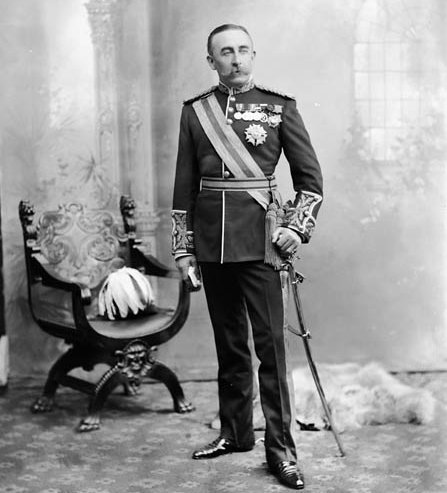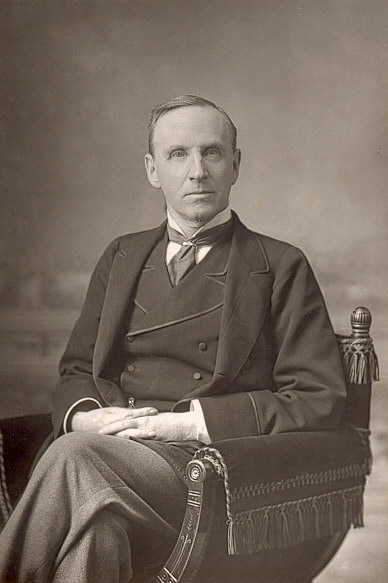- Home
- History of India
- Indian Independence movement
- Minto Morley Reforms
Minto Morley Reforms
Minto Morley reforms also known as Indian council act was formed in 1909. The act was passed by the Parliament of United Kingdom to increase the number of Indians in the governance and the legislative council. The reforms were made by the then Secretary of state John Morley and Viceroy Lord Minto. Hence this act is popularly known as Minto Morley reforms act. Some important salient features of the act were
- The act increased the number of seats in legislative council both in central and state.
- The number of elected members in the central legislative council was raised from 16 to 60.
- The number of elected members in provincial legislative council in Bombay, Madras and Bengal was fixed to 50 and Assam, Burma and Punjab was fixed at 30.
- The members of both central and provinces legislative council was divided into four categories they were ex officio member, nominated official members, nominated non official members and elected members.
- The act also empowered the members to discuss the budget before it was finally approved. The members were also given the right to discuss the matters of public interest. However no member was given the permission to discuss the matter which affected the relation between government of India and other foreign nations.
- The demand of Muslims to have a separate electorate was given. This had a huge impact on the relation between Hindus and Muslims in India. The idea of breaking the unity of Hindus and Muslims was successfully implemented by British.
- Two Indian members were nominated for the council of state for Indian affairs.
- The governor general was executed with the power to nominate an Indian member for the executive council.
- Separate Muslim constituencies were set up from which only Muslims had the right to vote and to be elected. This made Muslims to elect exclusively the Muslim candidates in the constituencies.
- However there was some severe impact from this reform
- British were able to break the unity of Hindus and Muslims
- Indians were not given any power, they were mere spectators
However this act was an important act in terms of constitutional development in the history of India. It gave India the electoral procedure to vote.
After Minto Morley reforms many revolutionary activities turned around in India. Some Indians were convinced that the use of violence alone could drive British from India. They started meeting in groups and started manufacturing weapons to fight against British. Due to this many nationalist were imprisoned and were executed without doing any trial. The Andaman Nicobar Jail was especially built to keep these prisoners. Further some important developments happened were that the division of Bengal was annulled. The new provinces of Bihar, comprising present Bihar, Jharkhand and parts of Odisha.
The world war one
which started in the year 1914 had a huge impact on India. The moderates
thought that it was their duty to help and support British during the war. This
would in turn help India in gaining freedom from British. The war caused severe
scarcity in war supplies, but however the steel industries and other industries
made huge profit. But however after the war the Indians were thoroughly
depressed by the behaviour of the British. They did nothing to improve the
economy of the India. Indians were not given any importance or more power in
the governance. This further led to the Lucknow act of 1916.
Lucknow Pact of 1916
Lucknow pact was signed in the year 1916. After the split of moderates and the extremists in Surat, Lucknow pact can be termed as an important act which brought both moderates and extremists together. The congress leaders and the Muslim league leader led by Mohd Ali Jinnah signed the Lucknow pact for self governance of India. When Muslim league started it had no clear directions other than wanting to support Muslims and support British, but however the Lucknow pact gave clear directions to the Muslim league. The main objectives of the pact were:
- To have a self government for India although based on separate electorate.
- Muslims demanded 1/3 representation in the central government.
- The demand to separate executive form judiciary
- Term of appointment of each legislative council should be fixed to five years.
- Legislative council should consist of 4/5th elected members and 1/5th nominated members. The members should directly be elected by the people.
- The strength of major provinces should be 125 and minor provinces to be 25.
- No bill or amendment could be introduced by any non official member if it affected any particular community.
- Salaries to all employees to be paid by the British government and not from Indian account.
- Between the two under secretaries one should be Indian.
- The head of the provincial legislative council should be Governor. In every province an executive council with Governor should be present.
- The strength of the imperial legislative council should be 150, in which 4/5th members should be elected. Half of the members should be Indians.
- Members of the legislative council should directly elect the president.
The Lucknow pact had a huge impact on Hindus and Muslim. It brought unity among the both. But however the separate electorate for Muslims was a blunder. In a way it agreed to consider Muslims as a separate nation. This pact also made it clear that India is a group of different communities and each community has its own interests. But whatever may be this pact brought Hindus and Muslims together again atleast for few years.
Update on coronavirus in India
Affiliate Disclosure:
If you make any purchase via a link on this site, I may receive a small commission with no added cost to you.




